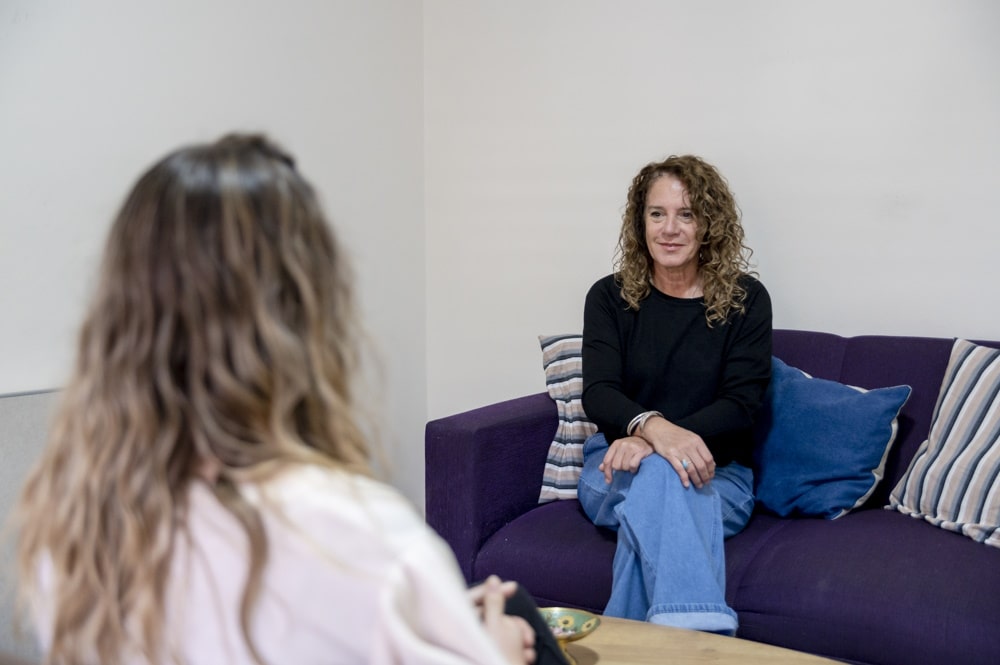Seeking help for your mental health issues is half the battle won. As your therapist, I will use a range of therapeutic interventions in mental health to help you overcome challenges and start living more freely.
The therapy techniques that I use will vary from a case-to-case basis, depending on the problem you are facing and the severity. Sometimes, finding a safe place and a non-judgmental person to share your intimate thoughts is enough. Whereas, other times, there is a need to introduce specific therapy techniques and tools to accelerate recovery and improve wellbeing.
Every session is a step toward healing and growth. As a relational integrative therapist, my role is to guide you through this process with compassion, curiosity, and a deep respect for your experiences. In this blog, I will take you through the practical interventions and tools I use to help you navigate emotional challenges and build the skills necessary for lasting change.
Book a discovery call with me to learn more about my therapy techniques for depression, anxiety, relationship issues, gender identity and more.
Immediacy & Engaging with the Present Moment
Immediacy is one of the core therapeutic interventions in mental health resolution, that I trust and actively use in my practice. It involves engaging with what’s happening in the moment, whether that’s an emotion, a thought, or a physical sensation. This approach allows us to create a direct and authentic connection, fostering openness and vulnerability in the therapeutic space.
By encouraging you to express your immediate reactions to the session, we open up new avenues for understanding your internal experience. I also model this by sharing my own thoughts and reactions in the moment, which helps build a stronger therapeutic alliance based on openness and trust.
Grounding & Emotional Regulation To Manage Intense Emotions
Many clients I work with experience high levels of emotional distress or struggle to manage anxiety. For those clients, grounding techniques are particularly helpful. These tools allow you to stay present and regulated, even when emotions feel overwhelming.
Breathing exercises and mindfulness techniques are often used to help you stay grounded in the present. We can explore these practices together in session, and I will guide you to discover which methods work best for you. By practising these therapy techniques, you’ll build greater emotional resilience and a stronger sense of self-regulation.
Cognitive-Behavioural Tools To Gain Insight & Clarity
In some cases, clients struggle to understand the connections between their thoughts, feelings, and behaviours. Here, I use cognitive-behavioural tools to help make sense of these patterns and offer a visual approach to understanding them.
For example, a therapy technique for depression is to introduce a whiteboard (or use digital tools) to visually map out how your emotional, cognitive, and behavioural responses relate to each other. This helps bring clarity to complex emotional experiences, enabling you to see the bigger picture. After the session, I’ll provide you with a PDF of the formulation, which you can reflect on between sessions to deepen your understanding.
Reframing & Shifting Perspectives for Growth
When clients become stuck in rigid thinking or behavioural patterns, reframing can offer a new perspective. Reframing involves gently challenging limiting beliefs or habitual responses, opening up space for more adaptive ways of thinking and acting.
This is a great therapy technique when used with care. It must align with your emotional tolerance and the strength of our therapeutic relationship. By exploring different perspectives, you can begin to see new possibilities on how to respond to difficult situations.
Self-Compassion & Addressing the Inner Critic
Many clients struggle with an inner critic that amplifies emotional distress. Through self-compassion interventions, I work with you to diminish this inner critic and foster a healthier, kinder relationship with yourself.
Therapy techniques, such as visualising a nurturing figure can help quiet negative self-talk, allowing you to approach yourself with more care and understanding. As one of the best therapeutic interventions in mental health resolution, this process can lead to greater self-acceptance and emotional healing.
Psychoeducation to Better Understand the Therapeutic Process
Psychoeducation plays a key role in the work I do, especially in couples therapy. I’ll explain the therapeutic process, the dynamics we’ll explore, and what to expect from each session. This helps you feel more informed and prepared, which in turn supports your engagement with the process.
For individuals, psychoeducation can also involve exploring emotional regulation, self-compassion, and other therapeutic concepts. These insights can help you build the skills needed for ongoing personal growth.
Risk Assessment & Safety Planning
If I assess a risk of harm, I take these concerns seriously. Part of our work together may involve creating a safety plan, which ensures that you have clear steps for managing these feelings and staying safe.
We’ll work collaboratively to develop a plan that’s tailored to your needs, ensuring you have the support and resources you need to stay safe and manage any crisis situations.
The Importance of Reflection
In each session, I set aside time for reflection. At the end of our work together, I’ll encourage you to think about what we’ve discussed, how you feel about the process, and any insights you’ve gained. This practice fosters self-awareness and helps integrate the work we’ve done.
Between sessions, I often suggest journaling as a way to deepen your self-reflection. This tool can help you process emotions, track progress, and explore insights that arise between sessions.
Moving Forward – Building New Patterns of Living
Through these therapeutic interventions for mental health, I aim to create a safe, compassionate, and collaborative space where you can explore your experiences, challenge old patterns, and cultivate healthier ways of relating to yourself and others. Each approach is chosen thoughtfully to respond to your unique needs, helping you grow and move forward in life.
If you’re ready to take the next step, I invite you to reach out so we can explore how we might work together. Together, we can develop a tailored approach to support your emotional and psychological wellbeing. Being empowered with the right therapy techniques can lead to a holistic and happy life.
Text, call, or fill out a contact form to get in touch with me today.



